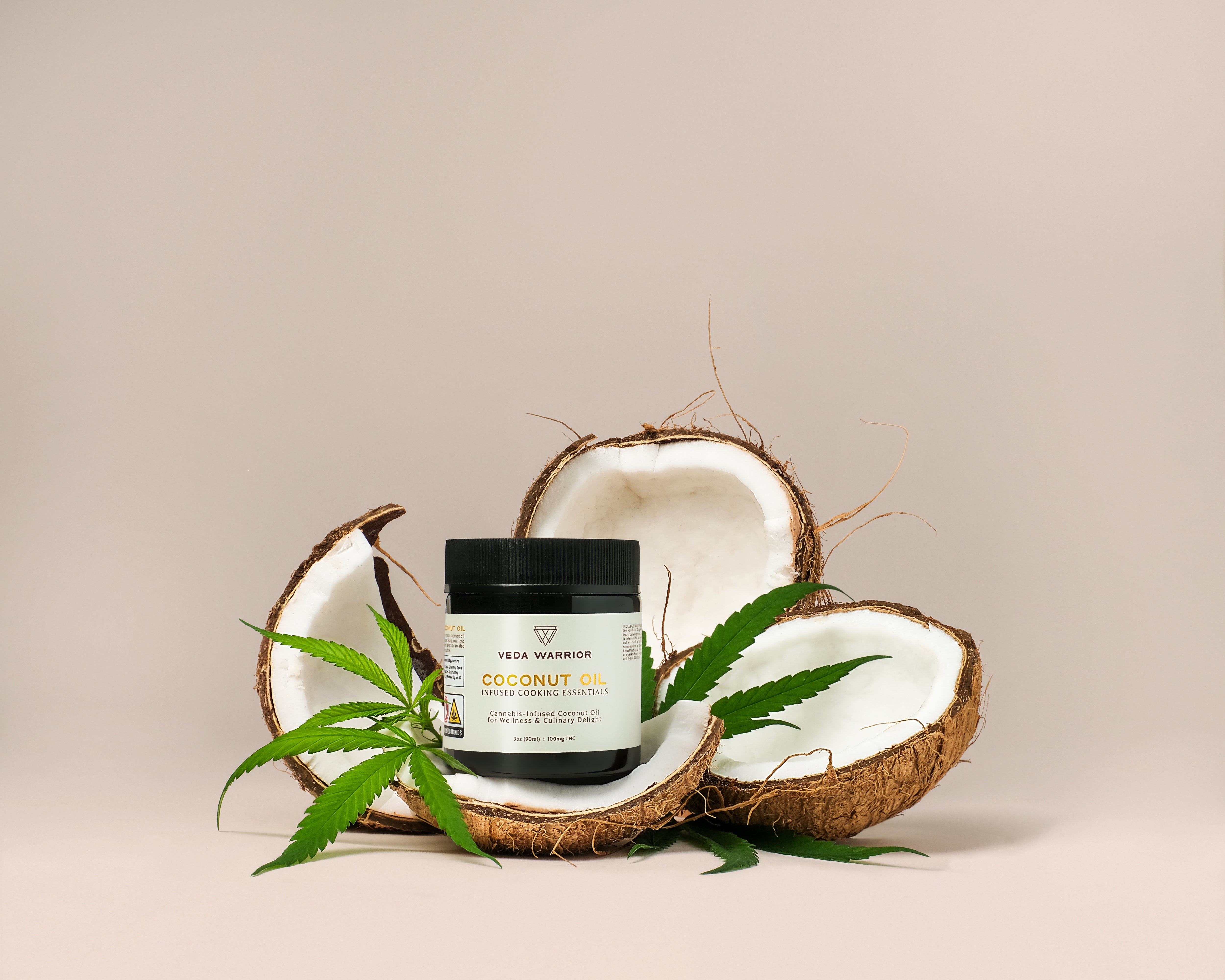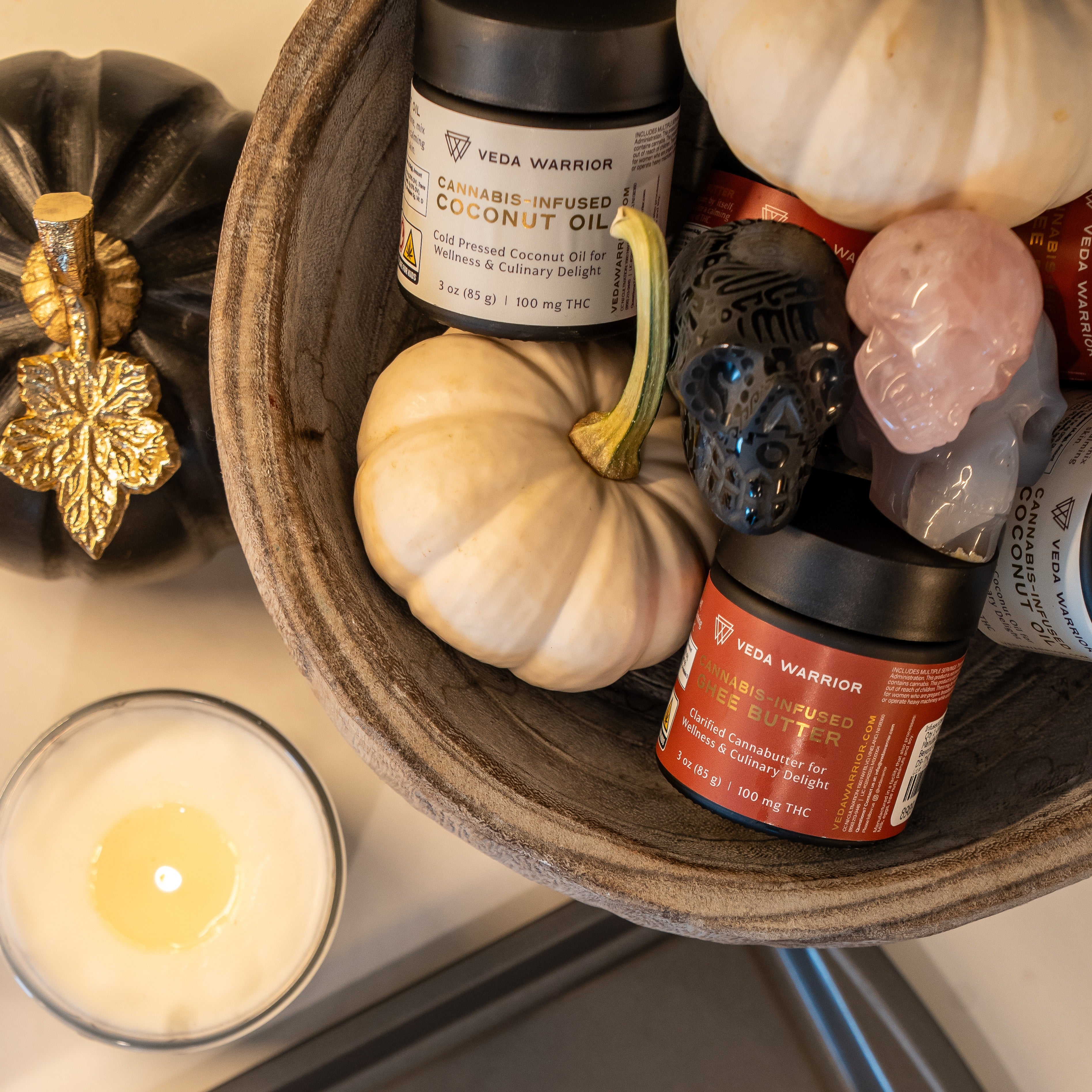There’s something magical about the moment you begin to drift off. The world softens, thoughts blur, and the body finally exhales. For most of us, that’s when the day’s noise fades and we feel truly at ease. But what if that peace feels hard to find?
If you’ve ever struggled to fall asleep, woken up at 3 a.m. staring at the ceiling, or felt groggy no matter how many hours you spent in bed, you’re not alone. Sleep today feels complicated. But in Ayurveda — the ancient holistic science of health from India — sleep is considered one of life’s greatest medicines.
In Ayurveda, sleep is called Nidra, one of the three pillars of life along with food and mindful living. In other words, to live well, you must also sleep well. When your rest is deep, your body repairs, your digestion resets, and your mind clears. When your sleep is poor, imbalance ripples across every part of life.
What is Ayurveda?
Ayurveda is a 5,000-year-old system of natural medicine, often called the “sister science” of yoga. Instead of focusing only on symptoms, it looks at the whole person — body, mind, and spirit — and seeks to bring them back into balance.
At its core, Ayurveda teaches that health is not just the absence of illness. It is a state of vibrant energy, strong digestion, emotional steadiness, and deep rest. Sleep, or Nidra, is considered sacred. Without it, even the healthiest diet or strongest body cannot sustain itself for long.
Where modern culture often treats sleep as optional — something squeezed in after work, emails, and streaming — Ayurveda views sleep as essential fuel for life itself. Rest is medicine.
The Ayurvedic Perspective on Sleep
Ayurveda explains poor sleep as a sign of imbalance in the body’s doshas — the three energies that make up our physical and mental constitution:
-
Vata (air + space): When imbalanced, it can cause restlessness, racing thoughts, and difficulty staying asleep.
-
Pitta (fire + water): Too much heat and intensity can lead to irritability, waking in the early hours, or vivid dreams.
-
Kapha (earth + water): Excess can bring oversleeping, heaviness, and sluggish mornings.
If you’ve ever lain awake with a busy mind, Ayurveda would say your Vata is high. If you fall asleep fine but wake at 2 or 3 a.m., your Pitta might be driving you awake. And if you wake feeling foggy despite a long night’s rest, excess Kapha may be weighing you down.
Rather than masking these issues, Ayurveda asks: What in your daily rhythm is disturbing your natural rest?
It encourages us to shift habits gently:
-
Eat your last meal earlier, so your body can finish digesting before bed.
-
Turn off screens and give your senses a chance to slow down.
-
Create calming rituals like sipping warm milk, meditating, or rubbing oil into your feet.
The goal isn’t to force sleep, but to allow it to arrive naturally — when the body and mind feel safe, nourished, and still.
Ayurveda and Cannabis
Interestingly, Ayurveda has long recognized cannabis, known as Vijaya in Sanskrit, as a medicinal plant. Ancient texts describe its use in small, intentional amounts to calm the nervous system, ease discomfort, and support sleep.
While cannabis was always used with care and respect, modern science is now confirming what Ayurveda intuited: cannabinoids can help quiet the mind, relax the body, and support deeper, more sustained sleep.
At Veda Warrior, we bring these two worlds together — Ayurveda’s ancient wisdom and cannabis’s natural plant power — to create gentle, effective ways to help you fall asleep faster, stay asleep longer, and wake up truly restored.
Practical Tips for Better Sleep
You don’t need to overhaul your life to benefit from Ayurveda’s sleep wisdom. A few small steps can help you create a nightly rhythm your body looks forward to:
-
Make evenings sacred. Treat bedtime as a ritual, not an afterthought. Dim the lights, silence your phone, and give yourself permission to slow down.
-
Sip something soothing. Warm drinks calm digestion and mind. A turmeric latte or herbal Moon Milk signals the body that it’s time to rest.
-
Massage for calm. A few drops of oil massaged into the temples, neck, or feet helps ground the nervous system.
-
Eat with rhythm. Include healthy fats like ghee, coconut oil, or olive oil at dinner. They nourish the tissues and prepare the body for deep rest.
-
Sync with nature. Try to go to bed closer to 10 p.m., when your body’s natural rhythms are most aligned with rest.
Simple doesn’t mean ineffective. These small shifts, practiced consistently, can make a profound difference in how easily sleep comes — and how refreshed you feel in the morning.
Using Veda Warrior Products for Sleep
One of the easiest ways to bring Ayurveda into your nightly ritual is through food. That’s why we’ve created a line of cannabis-infused cooking oils that merge ancient wisdom with modern science.
Here are three simple ways to try them:
-
Ghee (clarified butter): Melt 1–2 teaspoons into a warm Turmeric Latte before bed. This golden nightcap not only tastes delicious but also helps calm the mind and body for sleep.
-
Coconut Oil: Stir into hot chocolate as a soothing, plant-based alternative to your usual nightcap. Customers often tell us it helps them sleep “better than ever.”
-
Olive Oil: Drizzle a spoonful into soups or dinner dishes. Adding nourishing oils at night helps ground the body and prepare for rest.
Our oils aren’t just functional — they’re versatile. You can cook with them, blend them into recipes, or make simple remedies like Moon Milk. Each offers cannabis’s natural tendency to support rest while honoring Ayurveda’s belief in food as medicine.
Recipe Spotlight: Golden Turmeric Latte
One of Ayurveda’s most famous remedies for sleep is Moon Milk — a warm blend of milk, spices, and herbs sipped before bed. We’ve reimagined this tradition with Veda Warrior ghee for a calming twist.
Ingredients (1 cup serving):
-
1 cup warm milk (dairy or plant-based)
-
1–2 tsp Veda Warrior cannabis-infused ghee
-
¼ tsp turmeric powder
-
¼ tsp ashwagandha powder
-
¼ tsp vanilla extract
-
Pinch of cinnamon, cardamom, black pepper, and ginger
-
Optional: honey or maple syrup to taste
Instructions:
-
Warm the milk gently in a small pot.
-
Whisk in ghee until melted.
-
Stir in spices and simmer for 3–5 minutes.
-
Sweeten if desired and sip slowly.
This ritual not only helps you fall asleep faster but also creates a moment of mindfulness at the end of your day.
Sleep as Healing
One of Ayurveda’s most beautiful teachings says: if a patient is sleeping well, their healing has already begun.
That’s because sleep isn’t just rest — it’s when the body repairs tissues, resets digestion, strengthens immunity, and calms the mind. When you wake from truly deep sleep, you feel more than rested. You feel like yourself again.
Ayurveda reminds us that sleep is not something to earn or struggle for. It is something to welcome, like an old friend. When you treat the night as sacred, you invite the body into a state it already knows well: letting go.
Bringing It All Together
So tonight, consider trying something new — or rather, something ancient. Light a candle. Put away your phone. Make yourself a golden latte with Veda Warrior ghee, or stir coconut oil into your hot chocolate. Add a spoonful of olive oil to your dinner soup. Then let the quiet come.
Ayurveda teaches that true rest is not just about hours in bed, but about arriving at night with peace in your body and mind. With a little help from nature’s plants — and a touch of cannabis-infused wisdom — your deepest, most healing sleep is waiting.
Veda Warrior – Ancient Wisdom. Modern Healing.













